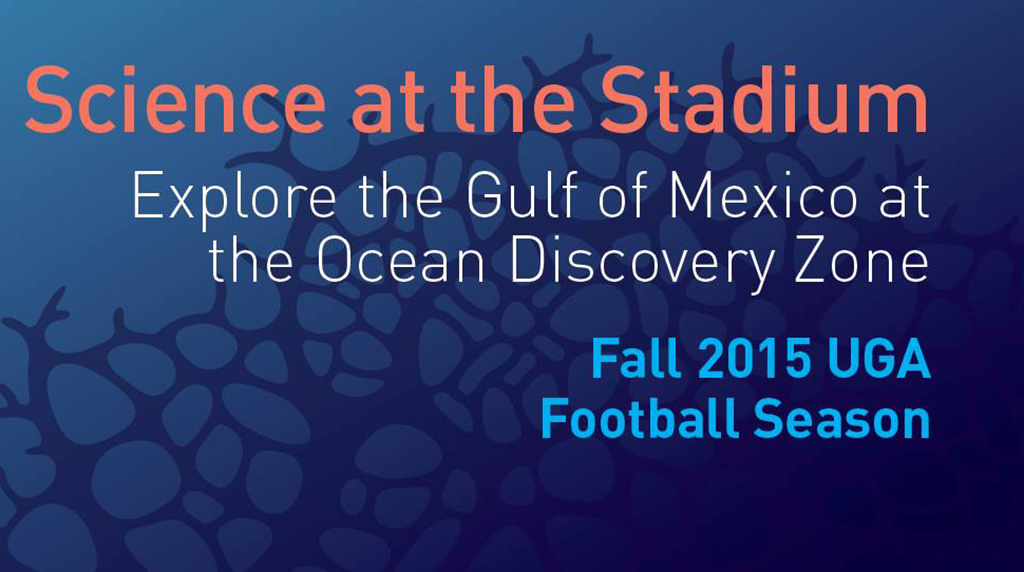September 11, 2015
ECOGIG launched the fall 2015 Science at the Stadium program to educate and inspire the public about our work in the Gulf and the importance of healthy ocean ecosystems. The series opened on Saturday, September 19th in Athens, Georgia before the University of Georgia home football game against the University of South Carolina. There will be four Athens-based events and one event at Florida State University in Tallahassee. This year’s Science at the Stadium series will feature the Ocean Discovery Zone, an exhibit booth and hands-on activity station designed to give non-scientists of all ages access to information about the oil spill, the Gulf of Mexico and ocean ecosystems. Participants will interact with ECOGIG scientists to learn about their research expeditions and tools of discovery in deep ocean research.
See photos from our inaugural event on September 19th!
The Science at the Stadium "Ocean Discovery Zone" will be open for four hours prior to the football game kickoff and will be located in front of the Marine Sciences Building on UGA's south campus in Athens. The November 14th event in Tallahassee will take place on Langford Green adjacent to the FSU stadium.
Fall 2015 Science at the Stadium Schedule
UGA - Athens, GA:
September 19 (UGA vs. South Carolina)
October 3 (UGA vs. Alabama)
October 17 (UGA vs. Missouri)
November 7 (UGA vs. Kentucky)
FSU - Tallahassee, FL:
November 14 (FSU vs. North Carolina State)
Science at the Stadium is a project of the Ecosystem Impacts of Oil and Gas Inputs on the Gulf (ECOGIG) consortium. In addition to cutting-edge scientific research, a primary goal of the consortium is to provide information about the scientific work and its relevance to the public through targeted communications and outreach activities. ECOGIG includes 29 researchers from 15 institutions, and is led by Project Director Samantha Joye in UGA’s Department of Marine Sciences. ECOGIG is one of several research consortia funded under the Gulf of Mexico Research Initiative (GoMRI). GoMRI is a 20-member independent Research Board created to allocate funds committed by BP for independent research programs following the 2010 Deepwater Horizon oil rig explosion and subsequent Macondo well blowout.


















 back to top
back to top